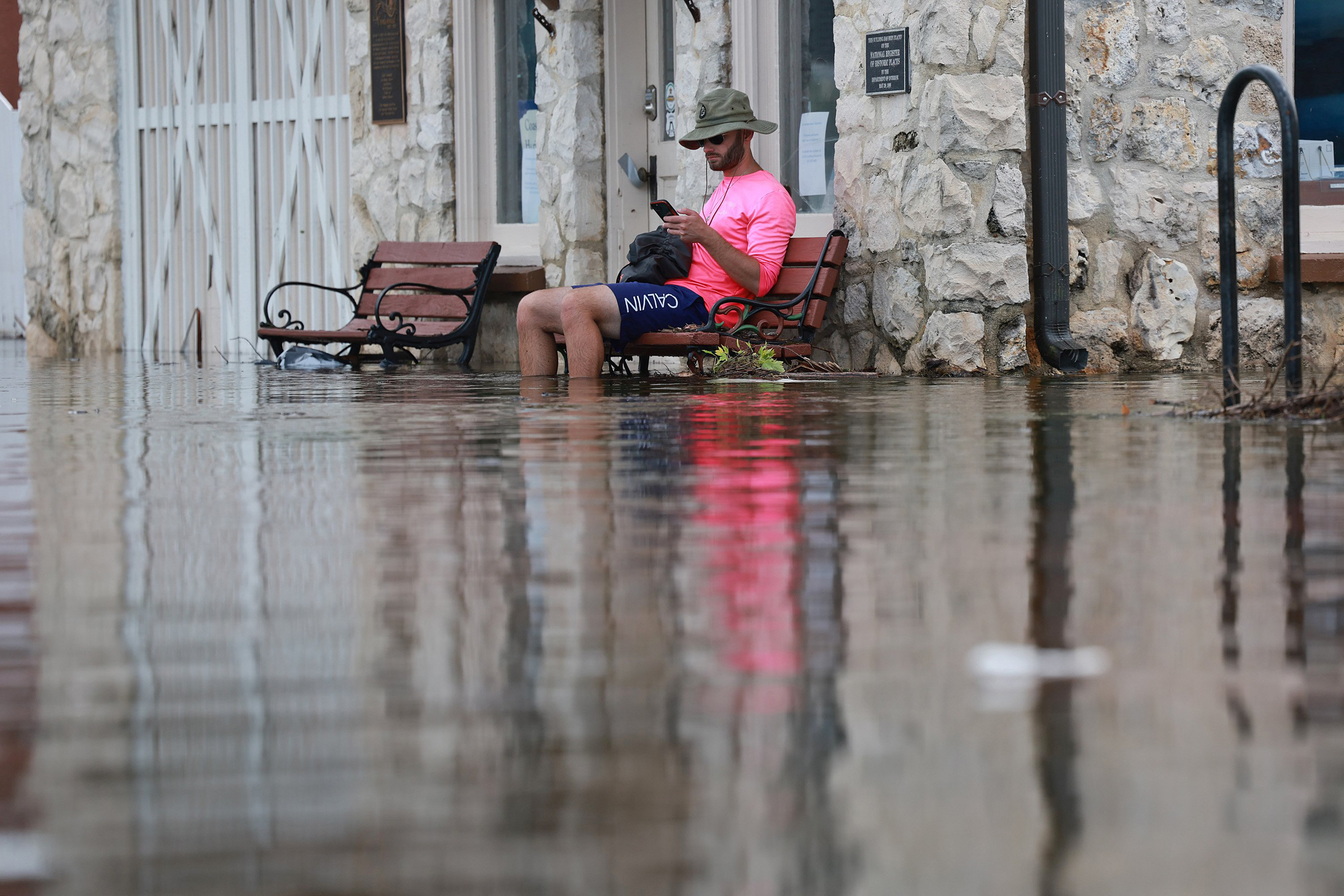Tampa News
Health Authorities Alert Public to Possible Flesh-Eating Bacteria in Hurricane Idalia’s Flooded Areas

Medical professionals are closely monitoring for potential Vibrio vulnificus cases one week after Hurricane Idalia struck, as this bacterium is commonly found in brackish waters.
“We are keeping our eyes and ears open to these patients coming to our hospital. And if it’s anything like Hurricane Ian, we’re likely to see cases popping up here in North Florida coming from these coastal regions,” Dr. Norman Beatty, assistant professor of medicine at the University of Florida College of Medicine’s Division of Infectious Diseases and Global Medicine, said.
Individuals who ventured into the floodwaters of Hurricane Idalia or entered their waterlogged homes during the cleanup process may face an infection risk from bacteria often referred to as “flesh-eating bacteria” if it comes into contact with an open wound or cut.
“When you get a Vibrio vulnificus skin infection, it is so fast and aggressive. You can put a mark on the edge of (the redness and swelling) with a pen, and an hour or two later, it has gone beyond thatmark,” stated Dr. Paul Gulig, a professor at the University of Florida College of Medicine’s Department of Molecular Genetics and Microbiology.
Despite medical experts informing FOX 13 that they haven’t encountered any cases of Vibrio vulnificus related to Hurricane Idalia, the Florida Department of Health has already reported 36 cases in the state this year.
The bacteria has tragically claimed the lives of seven Floridians, with fatalities occurring in various counties including Hillsborough, Pasco, Polk, and Sarasota.
In the aftermath of Hurricane Ian, there were 74 reported cases and 17 fatalities linked to the bacteria.
The Florida Department of Health had issued a warning last week, advising residents against wading in standing water prior to the arrival of Hurricane Idalia.
“Even as we speak, I’ve received another consult by a person who has a hand infection that was necrotizing. And I need to see this patient to assess whether they’ve been close to these storm waters and the brackish water we’re discussing,” Beatty said.
Given that Hurricane Idalia made landfall in a relatively less populated, rural region in comparison to Hurricane Ian, experts are cautiously optimistic that they will encounter only a limited number of cases. Nevertheless, the advice to residents remains unchanged.
“The main thing is, if you have a cut, then don’t go in the water in the first place,” Gulig said.
The bacteria can also be contracted by consuming raw oysters.
Individuals with weakened immune systems are at a higher risk.
-

 Sports3 days ago
Sports3 days agoTampa Bay Bucs Bring Back Iconic Creamsicle Jerseys in October
-

 Guides3 days ago
Guides3 days agoThe Ultimate Guide to 3 Unique Tea Spots in Tampa Bay
-

 Events21 hours ago
Events21 hours agoTampa Bay’s Chocolate Festival Brings 100+ Vendors Back This September
-

 Sports3 days ago
Sports3 days agoTampa BMX Star Aims for First Olympic Medal in Paris
-

 Tampa News3 days ago
Tampa News3 days agoTampa Police Launch Advanced System for Mental Health 911 Calls
-

 Tampa News21 hours ago
Tampa News21 hours agoIPO Launch for Tampa Pharma Company Guided by Ex-McKesson Executives
-

 Business Spotlight21 hours ago
Business Spotlight21 hours ago15 Startups Chosen for Tampa Bay Wave’s HealthTech|X Accelerator






You must be logged in to post a comment Login